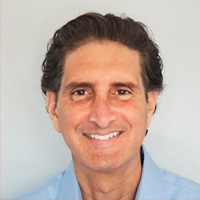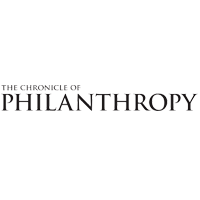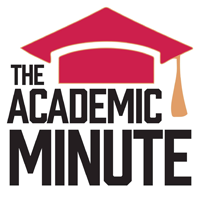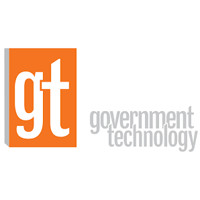Media Watch
Climate change fueled California's recent surge in catastrophic wildfire seasons, study says
USA Today -
The recent decades-long surge in catastrophic wildfires in California is almost entirely due to climate change, a new study published Monday reports. … “We found that we can expect as much as a 50% increase in burned area from 2031 to 2050 relative to the past few decades,” said study co-author Amir AghaKouchak, a professor of civil and environmental engineering at the University of California, Irvine. … “By acting now to reduce our carbon dioxide emissions and pursue more sustainable transportation, energy production and agricultural practices, we can reduce the adverse effects of global climate change.” Read More
Climate change supercharging wildfires in California, researchers say
KTLA -
Human-caused climate change is largely responsible for an explosion in wildfire damage in California over the past quarter century, and the problem is only going to get worse in coming years, according to a study from the University of California. … “The 10 largest fires in California history have all occurred in the past two decades, and five of those have happened since 2020,” said Amir AghaKouchak, a UC Irvine professor of civil and environmental engineering. “Through our study, it has become clear that [human-caused] climate change is the major driver of this increase in wildfire damage.” Read More
Electric Car Tutorial: What Exactly Is Powering Your Ride
David Nazar News -
Deciding to purchase an electric vehicle can be overwhelming these days. There are different types of electric vehicles and many automakers are trying to capitalize on the EV enthusiasm. Automakers worldwide are building all kinds of electric cars and minivans as well as sport utilities and trucks. Several car companies have comprehensive business plans to electrify much of their inventory over the next decade. And some companies have announced goals for all electric vehicles within the next five years. However this rapidly booming EV market could make these changes somewhat confusing for the average consumer. Reporter David Nazar with Sustaining US on PBS visits [Professor] Jack Brouwer with the University of California, Irvine for this simple electric car tutorial. Watch Here
Broadcom Co-Founder Henry Samueli and Wife Susan Give $50 Million to UC Irvine for 3 New Research Institutes
The Chronicle of Philanthropy -
Henry and Susan Samueli gave $50 million to University of California at Irvine to create three multidisciplinary research institutes in the Henry Samueli School of Engineering. The three institutes will together be known as “Engineering+" and will include a center focused on engineering and health, one on engineering and society, and another on engineering and the environment. Henry Samueli co-founded the semiconductor corporation Broadcom. He also serves as an adjunct professor in the university’s electrical engineering and computer-science department. [Subscription required, you can request an electronic copy of the article by sending an email to communications@uci.edu.] Read More
UC Irvine’s engineering school gets $50 million gift
EdSource -
The University of California, Irvine, has received a $50 million donation to its engineering school to create three new research institutes, campus officials announced. With the gift from Susan and Henry Samueli, the engineering school will launch research institutes focused on health, environment and society. The Engineering+Society Institute will feature research into how automation can improve the human experience, while research at the Engineering+Environment Institute will explore large-scale sustainable energy solutions, among other things. The Engineering+Health Institute’s research will include explorations into “information technologies that bring medical care to underserved communities,” the campus said. Read More
The Compost: Have your steak and save the planet, too?
The Orange County Register -
New institute coming: UC Irvine will develop a new Engineering+Environment Institute, along with two others focused on health and society, thanks to a new $50 million gift from philanthropists Susan and Henry Samueli. The environmental institute will specifically focus on how climate change is impacting our coastlines, Yusra Farzan reports. [Subscription required, campus-wide access provided by UCI Libraries. Sign-up here: https://guides.lib.uci.edu/news/ocregister] Read More
Regina Ragan, University of California, Irvine – Using E. coli to Detect Water Contamination
The Academic Minute -
On University of California, Irvine Week: We hear about the harm bacteria can do, but what about the good? Regina Ragan, professor of materials science and engineering, examines this question. Read More
UC Irvine receives $50 million from Henry and Susan Samueli
Philanthropy News Digest -
The University of California, Irvine (UC Irvine) has announced a $50 million gift from Giving Pledge signatories Susan and Henry Samueli that will establish three multidisciplinary research institutes in the Henry Samueli School of Engineering. The institutes, which will be unified under the banner “Engineering+” include the Engineering+Health Institute, … the Engineering+Society Institute,and the Engineering+Environment Institute …. The gift also includes funding to create the Office of Inreach, dedicated to the well-being, academic success, sense of belonging, and career opportunities for undergraduate students in engineering school. Read More
UC Irvine Gets $50M for Three New Engineering Institutes
Government Technology -
With a $50-million gift from the couple [Henry and Susan Samueli] that UC Irvine’s engineering school was named for, three new multidisciplinary research institutes will be established under its roof to better foster collaboration across engineering and three other sectors: public health, society and the environment. These institutes will run under the banner of Engineering+ and will be within the Henry Samueli School of Engineering …. Magnus Egerstedt, the Stacey Nicholas dean of engineering, said Engineering+ at UCI will be “a model for universities worldwide on how this can be structured.” Read More
UC Irvine launches interdisciplinary engineering research institutes with $50M gift
Daily Pilot -
With a $50-million gift from the couple [Henry and Susan Samueli] that UC Irvine’s engineering school was named for, three new multidisciplinary research institutes will be established under its roof to better foster collaboration across engineering and three other sectors: public health, society and the environment. These institutes will run under the banner of Engineering+ and will be within the Henry Samueli School of Engineering …. Magnus Egerstedt, the Stacey Nicholas dean of engineering, said Engineering+ at UCI will be “a model for universities worldwide on how this can be structured.” [Subscription required, you can request an electronic copy of the article by sending an email to communications@uci.edu.] Read More










